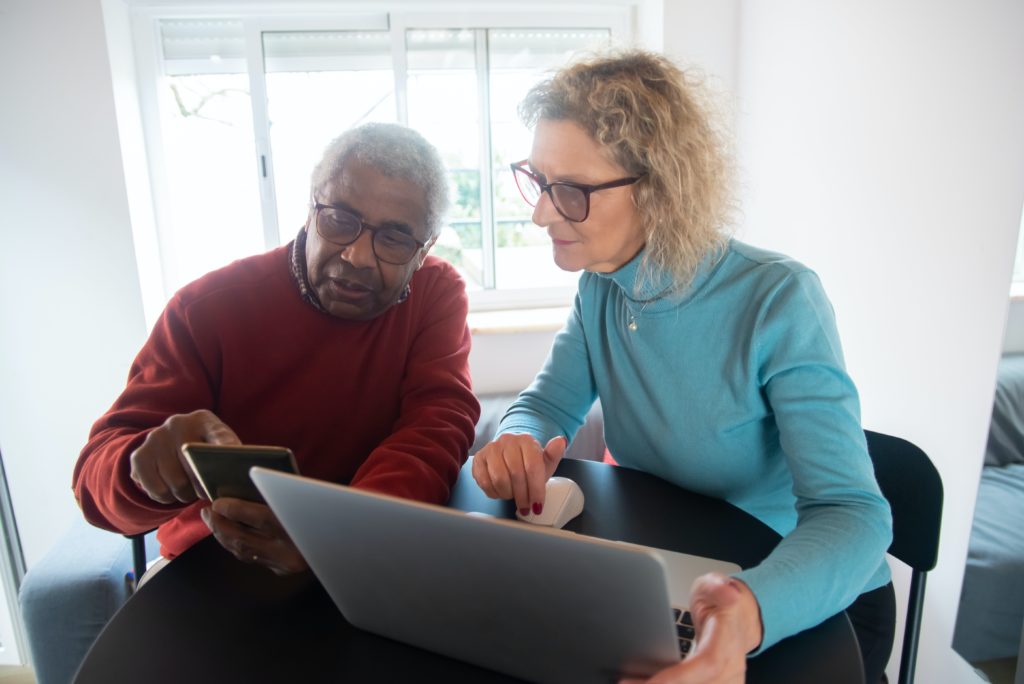
Older adults may need help keeping their finances digitally secure. Digital banking can make it easier for your loved ones to access their finances and keep track of transactions. However, online banking can confuse older adults (which is why they often rely on their children and grandchildren to help them). Here are a few tips for assisting seniors in keeping their finances safe in the digital age.
Walk Your Loved One Through Digital Banking Processes
Older adults may lack digital confidence when they try online banking. They may also be unsure of what to do if something goes wrong (such as password issues, overdrafts, etc.)
To help your loved one feel secure banking online, take some time to walk them through the process. Then, help them open an account (if there isn’t one already) and access online banking. You’ll typically need an account number or debit card number to register for online banking. Then, you’ll set up a username and password or code to log into your loved one’s bank account online.
You may be tempted to set up an easy password for your loved one to remember, such as “1,2,3,” or “password,” but this is not a great idea. Remember, you need to help your loved one ensure account security and safety, which requires a password that’s not easy for a hacker to guess. Of course, you can always write the password down and keep it where your loved one can easily access it whenever they log into online banking.
Focus on Safety
Older adults are often the target of criminals who are very convincing when trying to gain access to other peoples’ bank accounts. To keep your loved ones safe, establish some online banking rules and ensure the bank you choose has precautions to protect members’ information.
Some banks offer additional security measures for older customers. Some even provide educational campaigns to warn and educate older adults about investment and pension fraud. In addition to taking advantage of these security programs and educational opportunities, create a list of approved people your loved one should only share financial information with. This list should be minimal.
Check Statements With Your Loved One
If your loved one is willing, offer to look over bank statements with them regularly. You may choose to do this weekly or monthly. Regularly reviewing bank statements can help you identify potential red flags that your loved one’s financial information may be compromised.
In addition to financial health, older individuals also often need help with regular daily activities. If your loved one could use assistance with daily tasks such as dressing, housekeeping, grooming, or laundry, Elder Care Alliance communities offer these types of services to residents. Take our care needs assessment to see if senior living is the right fit for your loved one.




















